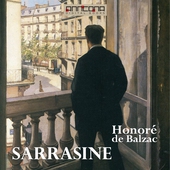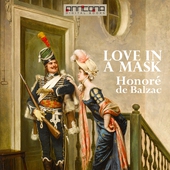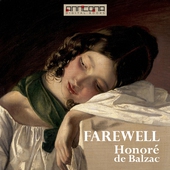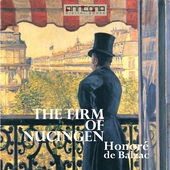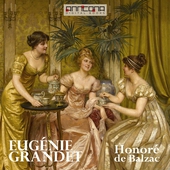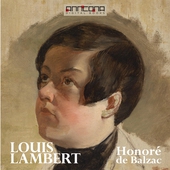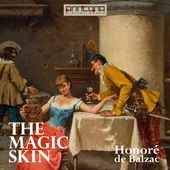
Lägg till önskelistan
Gratis smakprov
- Spara till biblioteket
- Lyssna på smakprov
100 Quotes by Honoré de Balzac ljudbok
Pris
69 kr
´100 Quotes by Honoré de Balzac’ is a collection of writings and thoughts from the French novelist and playwright, Honoré de Balzac.
Balzac was known to frequently flit between several ‘work in progress’ writings, and his finished articles were often revised between editions.
The way that Balzac wrote is very much reflective of the difficulties in his own life, and perhaps the writer was attempting to stabilise his life through fiction.
A superb and thought-provoking collection of inspir...
Ljudbok
69 kr
Pris
Förlag
Saga Egmont
Utgiven
18 November 2022
Längd
0:24
Genrer
Familj & Hälsa, Humor, Hälsa, Livsstil, Fritid, Skönlitteratur
Språk
English
Format
mp3
Kopieringsskydd
Vattenmärkt
ISBN
9782821178465
´100 Quotes by Honoré de Balzac’ is a collection of writings and thoughts from the French novelist and playwright, Honoré de Balzac.
Balzac was known to frequently flit between several ‘work in progress’ writings, and his finished articles were often revised between editions.
The way that Balzac wrote is very much reflective of the difficulties in his own life, and perhaps the writer was attempting to stabilise his life through fiction.
A superb and thought-provoking collection of inspiring quotes, ´100 Quotes by Honoré de Balzac’ is ideal for fans of Balzac and those who want something to dip in and out of.
Honoré de Balzac (1799-1850) was a French novelist and playwright, most famous for a sequence of novels, collectively called 'The Human Comedy'. His signature style was a warts-and-all representation of post-Napoleonic French life, rich in detail and featuring complex, unfiltered characters.
The style means Balzac is regarded as one of the pioneers of European literary realism. He is named as an influence on writers including Emile Zola, Henry James, Charles Dickens and Gustave Flaubert.
The first novel he published under his own name was 'Les Chouans' in 1829. In 1834 he hit upon the idea of grouping his novels together to record all of society. The result, over a period of years, was 'The Human Comedy', which comprised three categories: 'Analytic Studies'; 'Philosophical Studies'; and 'Studies of Manners'.


